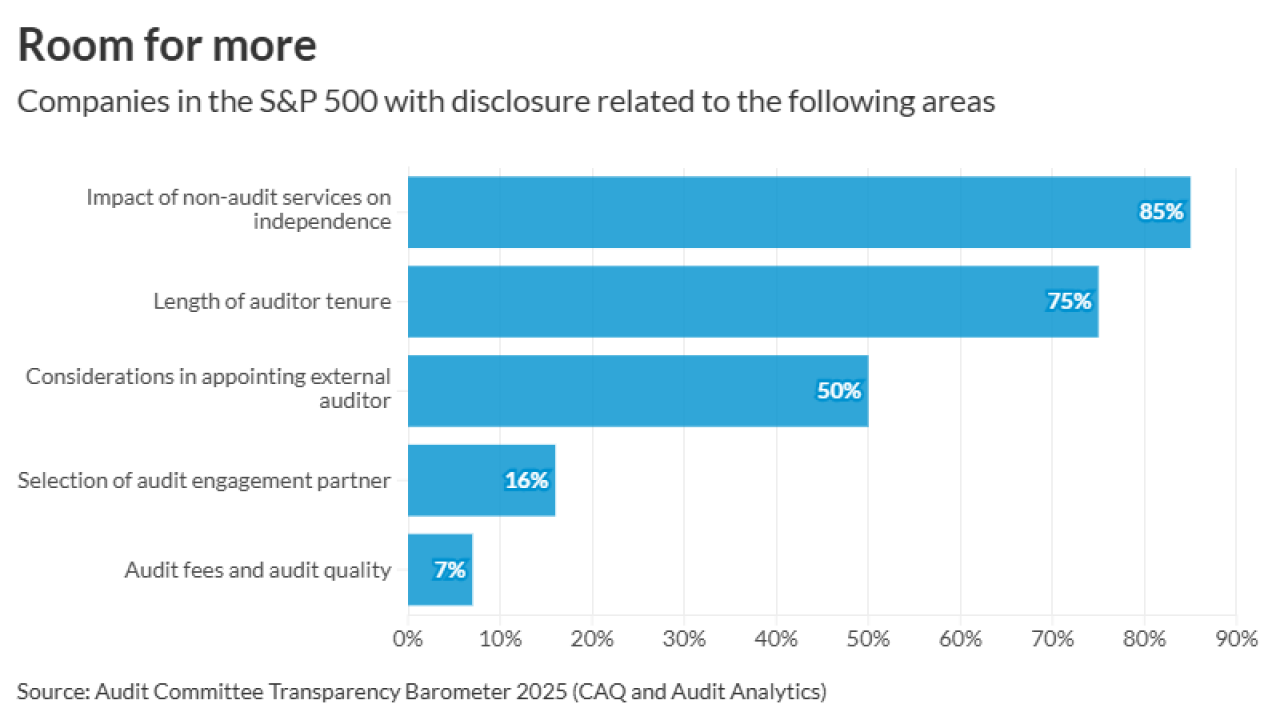Banks that deal with international tax reporting are facing a slew of upcoming deadlines and regulations.
Among them are those related to FATCA, the Foreign Account Tax and Compliance Act that was included as part of the HIRE Act of 2010. The controversial law was delayed several times to give the Treasury Department the opportunity to negotiate intergovernmental agreements with the tax authorities of other countries, and to allow banks and the IRS to set up systems for exchanging tax information. The system fully got underway last fall after years of preparation (see
Now a slew of deadlines are kicking in, including one last week on March 31 in which foreign financial institutions had to file Form 8966, known as a FATCA Report, for calendar year 2015 with the IRS.
Two more deadlines are coming up April 30 and May 31 for banks in the Cayman Islands to do their reporting for both FATCA and the United Kingdom’s version of FATCA.
“The next key deadline for a major country is April 30 when there is the requirement for the FFI to notify the Cayman Islands that they are going to be reporting both for FATCA as well as for U.K. CDOT rules, which are also effective this year for reporting,” said Deloitte global FATCA leader Denise Hintzke. “That is the U.K.’s version of FATCA, where they’re looking for U.K.-specified persons from their Crown Dependencies and Overseas Territories. Cayman is an overseas territory, and therefore any FFI in that jurisdiction is subject to those reporting rules this year as well. The next deadline after that is actually May 31, and that is the deadline in Cayman for filing the report, both for FATCA and U.K. CDOT. All of the FFIs need to submit either information about any specified U.S. persons, or if they choose to, a ‘no report,’ basically telling the government that they have nothing to report.”
Another deadline for foreign financial institutions is coming up at the end of June.
“June 30 is the last date that an FFI has for remediating their pre-existing accounts under FATCA,” said Hintzke. “There is a requirement for the FFI to go out to all of their pre-existing accounts and get them properly documented and classified under FATCA. That deadline is June 30 and there will in the future be a certification that the responsible officer will need to do back to the IRS that they met that deadline for the due diligence.”
Later in the year are lots of other deadlines for foreign financial institutions in so-called Model 1 jurisdictions, under which they first report the financial information to their own country’s tax authority, which in turn passes it along to the IRS, as opposed to Model 2, in which they report it directly to the IRS.
“Sprinkled throughout the year, all of the countries in Model 1 jurisdictions have their reporting deadlines,” said Hintzke. “A couple of them were earlier on in the year for nonconsenting accounts and things like that. Most of them are falling in the June-July timeframe, but each country can be different. Probably two-thirds of the FFIs in the world are sitting in the Cayman Islands, so they always have the biggest reporting impact.”
Many foreign banks are having a tough time dealing with all of the complex FATCA requirements.
“Institutions are still struggling with it somewhat,” said Hintzke. “Last year was a very difficult reporting year and this year is kind of lining up the same way.”
Complicating matters even more is the additional information that needs to be reported this year. “They need to report income stream payments, and for the fund industry at least they need to report gross distributions,” said Hintzke. “That’s been causing some issues. As far as the remediation of the accounts, I think in general most organizations are well on their way. But I think they’re finding it more difficult than they envisioned it was going to be. They have what we would call a population of recalcitrant account holders, meaning they’re having difficulties getting the actual documentation they need from the investor, from the account holder. That’s been a little surprising to some of them, so they’re trying to figure out exactly how do they deal with that.”
As with previous regulatory regimes, the banks are going to need some time to adjust. “I’ve been doing information reporting for a long, long time, and when new rules come in like this, and when they’re as expansive as this, it takes a few years to really get your arms around the process,” said Hintzke.
Another concern is the Common Reporting Standard that the Organization for Economic Cooperation and Development has developed in response to a request from the Group of 20 finance leaders, calling on jurisdictions to obtain information from their financial institutions and automatically exchange that information with other jurisdictions on an annual basis.
“It’s FATCA on steroids,” said Hintzke. “That’s kicked off in several countries already, so there are all these requests for self-certification going out. The first reporting there will be early next year. People are starting to scramble to get their arms around that as well. Most clients are trying their hardest. They’re trying to do the best they can to comply with all these different complicated rules.”
While the Common Reporting Standard bears some resemblance to FATCA’s Model 1 intergovernmental agreements, it’s also much more far-reaching.
“It’s based on the Model 1 IGAs, but you have a couple of key differences, in that this is multiple governments,” said Hintzke. “It’s not just one government. There are actually 96 of them. Sixty-three of them went live already on January 1, even though the majority of those 63 haven’t given specific guidance. The documentation requirements are more onerous. There are requirements that you don’t have the same de minimis thresholds that you had under FATCA. There aren’t all of these compliance statuses that are available. In terms of the amount of heavy lifting around making sure you’ve got proper documentation, it’s a bigger undertaking.”
Banks are facing some new documentation demands with the Common Reporting Standard. “The documentation that they collected for FATCA does not work for CRS,” said Hintzke. “There needs to be self-certification. Even though they’ve gone through this whole exercise of documenting entities for FATCA, they now need to go back for CRS. In addition, each country is deciding who they’re going to treat as participating. For example, you’ve got the U.K., which has 96 countries on their list, and you have Ireland, and that has 77. The reason that is important is because entities in non-participating jurisdictions receive some negative treatment and are treated differently. For example, if you were an entity in Brazil and you were to open up an account in the U.K., everything would be fine. If you were that same entity in Brazil and you went to open up an account in Ireland, they would treat you as non-participating, and the negative impact would kick in. That makes things much more complicated.”
Banks will need to keep track of how their country views other countries’ financial institutions and taxpayers. “You need to track not only which countries are participating, but who does each country view as participating,” said Hintzke. “You’ve got issues because every single country has different definitions of what a tax resident is, so when you’re determining what your tax residencies are, that can be difficult. Some countries don’t have tax residencies, like Cayman, so that’s raised a lot of concern about what people are calling ‘tax nomads,’ meaning that somebody will attempt to reside or claim residence in one of these countries that don’t have a tax residency in order to not have any reporting anywhere. There is discussion of how that gets dealt with. Because it’s all of these countries, it just makes it much more complicated.”
Hintzke likens FATCA to a wheel-and-spoke model, while the Common Reporting Standard is more like a spider web. “With FATCA, you’ve got the U.S. government in the middle and it goes out to all of these countries, and the countries are coming back into them,” she said. “Here this is a spider web because it is 96 different countries that are coming up with their own rules and will be deciding who they will be sharing with and how to treat different entities.”
A further wrinkle to watch for is the OECD’s country-by-country reporting requirements that are part of its BEPS, or Base Erosion and Profit Shifting, project. The country-by-country reporting requirements will require multinational companies to provide aggregate information annually, in each jurisdiction where they do business, on the global allocation of income and taxes paid, together with other indicators of the location of economic activity within the multinational group, as well as information about which entities do business in a particular jurisdiction and the business activities in which each entity is engaged.
“I’ve been watching it from the U.S. side,” said Hintzke. “There was some discussion where the U.S. was not going to be participating, and now they’ve said that they will participate, probably in about two years, but they’re not using the exact same format as the rest of the world. There have been a lot of discussions around leveraging some of the portals that have been put into place for both FATCA and CRS, for the purposes of transferring this information and piggybacking on it. It’s all about sharing information and getting information into the hands of the various governments so that they can then decide, in the case of country-by-country reporting, which amount of revenues should belong to their jurisdiction for purposes of taxation.”
The goal is to discourage multinational companies from setting up structures to avoid any taxation. “Country-by-country reporting is all about letting each country collect the information it needs to really figure out whether they’re getting their share of the revenue that belongs to them, which is similar to FATCA and CRS,” said Hintzke. “Can you leverage the same portals? The OECD is in the process of looking at what kind of engine they’re going to be building to collect all this data that’s coming in under CRS, and the thought is that maybe it can also be used for country-by-country reporting. It’s starting to converge with FATCA.”





